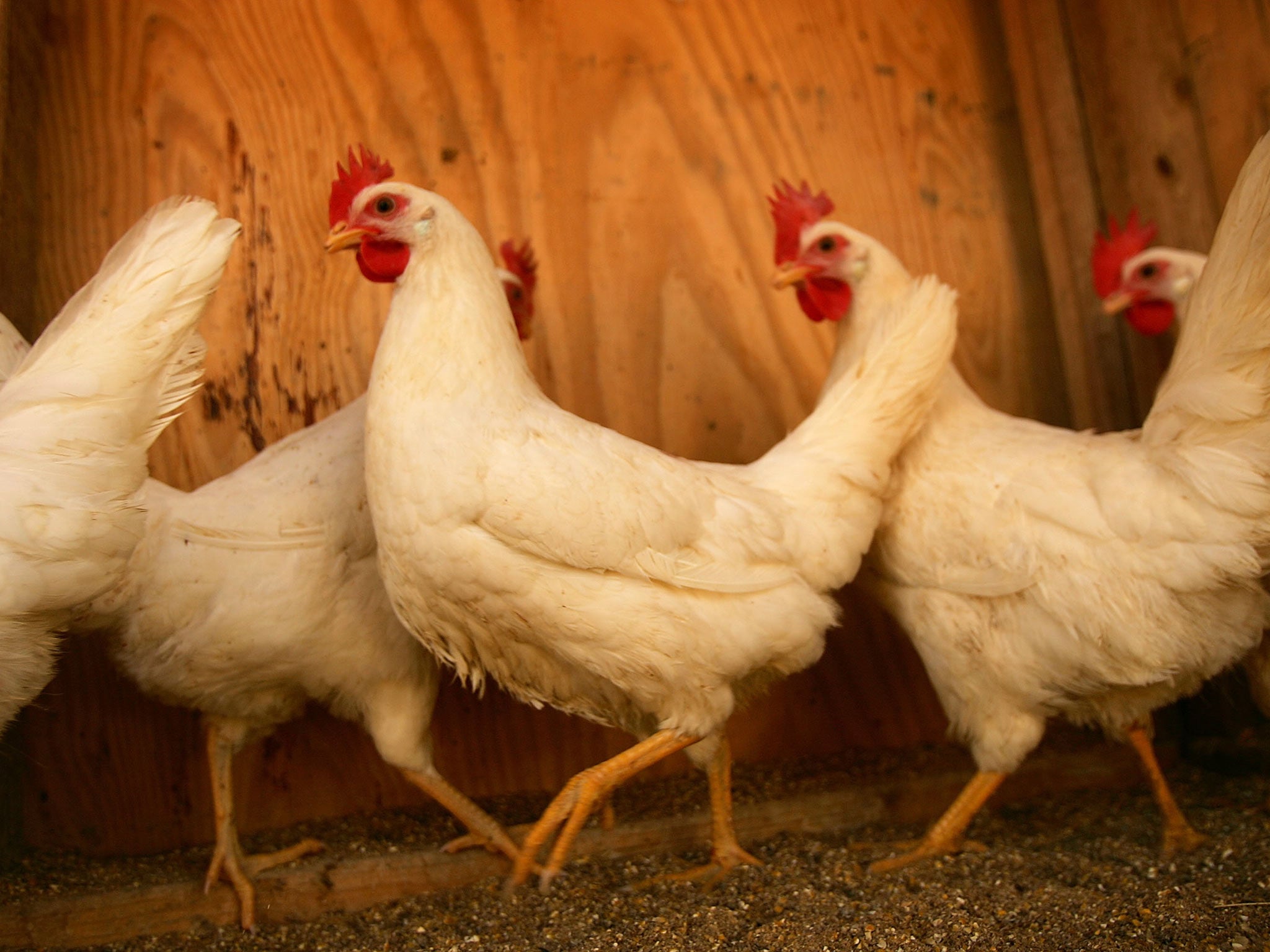Chicken accounts for half the meat eaten in the UK – but here’s why it’s not as good for you as you might think
Antibiotic resistant nuggets, poop covered thighs and evidence of pint of fat in one chicken are just some of the reasons to reconsider today’s lunch


Your support helps us to tell the story
From reproductive rights to climate change to Big Tech, The Independent is on the ground when the story is developing. Whether it's investigating the financials of Elon Musk's pro-Trump PAC or producing our latest documentary, 'The A Word', which shines a light on the American women fighting for reproductive rights, we know how important it is to parse out the facts from the messaging.
At such a critical moment in US history, we need reporters on the ground. Your donation allows us to keep sending journalists to speak to both sides of the story.
The Independent is trusted by Americans across the entire political spectrum. And unlike many other quality news outlets, we choose not to lock Americans out of our reporting and analysis with paywalls. We believe quality journalism should be available to everyone, paid for by those who can afford it.
Your support makes all the difference.Poultry now accounts for nearly half of all the meat bought in the UK, as British people are now eating an estimated 2.2 million chickens per day. That's a helluva lot of birds. This week as news was released about poultry farm drugs that are putting human lives at risk it is becoming harder to ignore the detrimental impact animal agriculture has on our health, the planet and animals. Here is why it is time to replace the chicken with chickpeas:
1. That drumstick could expose you to antibiotic-resistant bacteria
Chickens raised for their flesh are often packed by the thousands into massive sheds and fed large amounts of antibiotics to keep them alive in conditions that would otherwise kill them. As if that weren't enough to turn you off your lunch, figures revealed this week show that antibiotics banned on US chicken farms a decade ago (because they have been shown to spread potentially deadly food poisoning bacteria in humans) are used in increasingly large quantities on UK farms. This means consumers who contract food poisoning bugs, including salmonella and E coli – often from infected poultry meat – could find their lives at risk because they may not respond to antibiotic treatment.
2. If you're eating chicken, you could be eating poo
Research has shown that as much as 92 per cent of all chicken on sale is contaminated with faecal matter. This helps to explain why food poisoning from poultry continues to make almost a quarter of a million Britons ill every year.
3. If you think chicken is a healthy choice, think again
A medium-sized chicken now contains a pint of fat. Professors Michael Crawford and Yiqun Wang of London Metropolitan University found that chicken contains as much fat, gram for gram, as a Big Mac. They analysed chicken thigh meat from several supermarkets and found it contains more than twice as much fat as it did in 1940, a third more calories and a third less protein. What's more, animal-derived foods, even lean-looking white meats, are often associated with large amounts of saturated fat and cholesterol – artery-clogging substances that are a main cause of heart disease.
4. Chickens are individuals, not nuggets
Chickens are not just body parts to pick out of buckets but individuals with the capacity to feel pain. Make no bones about it: chickens are gentle, intelligent animals with distinct personalities. They can recognise others by their facial features – as a PETA supporter who lives with a rescued chicken can attest. His sweet Penelope sits by the upstairs window in the afternoon. As soon as she spots him getting off the bus, she bounds down the stairs to greet him when he opens the door.
5. It supports cruelty to animals
Every day, thousands of these gentle birds are crammed into sheds where disease, ammonia burns from the filthy air, smothering and heart attacks are common. They exist in these miserable conditions, forced to endure the stress and trauma of living amongst injured and dead birds, until the day they are loaded onto trucks bound for the abattoir, where they are slaughtered in painful ways.
6. Because labels are meaningless
Red Tractor, RSPCA Assured, Soil Association – these schemes are almost meaningless as far as animal welfare goes. Even on farms bearing these labels, animals are often mutilated without painkillers, artificially inseminated, kept in crowded conditions, robbed of their beloved offspring and shipped in all weather extremes to watch other animals be killed before sharing the same fate.
7. Eating animals wreaks havoc on the environment
Consider this one foul fact: raising millions of chickens on factory farms each year produces enormous amounts of excrement. And because chickens are often fed massive amounts of antibiotics, these chemicals are also found in high concentrations in their faeces, which mean that faecal pollution from chicken farms is especially disastrous for the environment. In the United States, for example, scientists discovered that male fish are growing ovaries, and they suspect that this freakish deformity is the result of factory-farm runoff from drug-laden chicken faeces.
Join our commenting forum
Join thought-provoking conversations, follow other Independent readers and see their replies
Comments